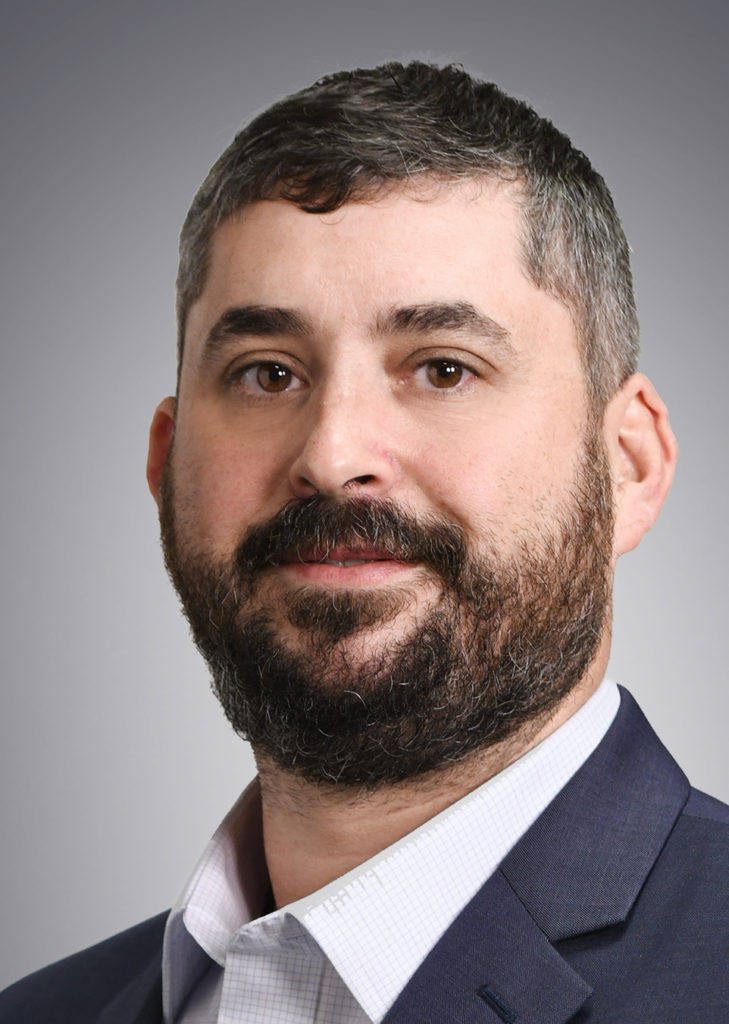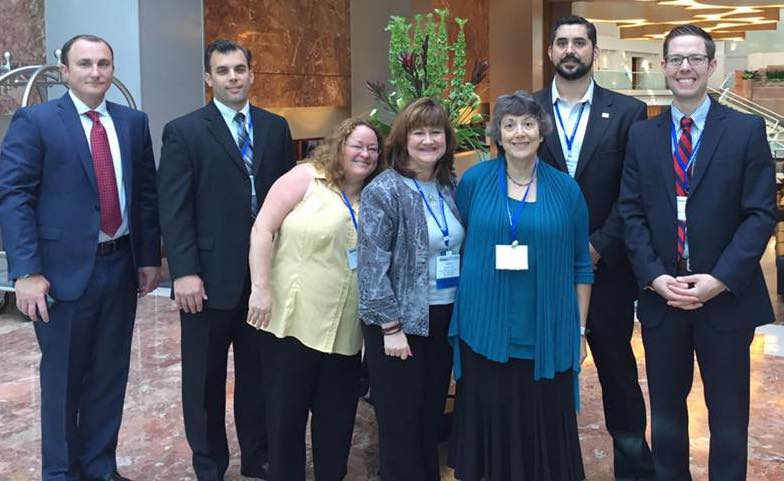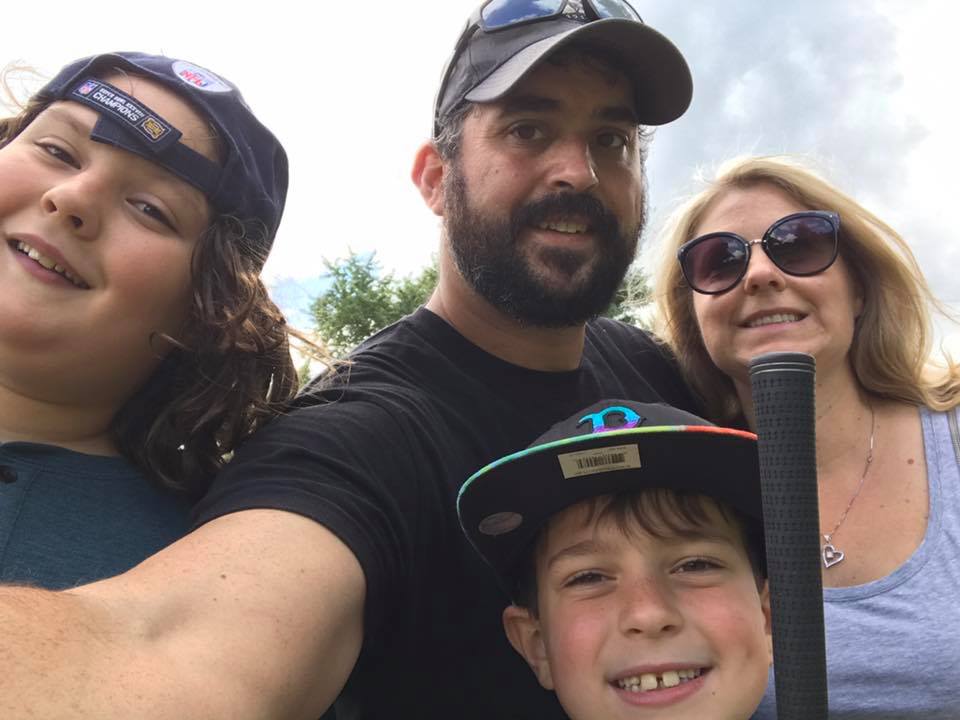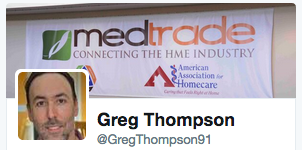WOBURN, MA – The president and CEO of the Home Medical Equipment and Services Association of New England (HOMES), Woburn, Mass., is not afraid to speak his mind. For example, when asked about CMS’ recent decision to not award contracts (for the most part) in the latest round of competitive bidding, Jason Morin, MBA, RRT, did not mince words. “I felt like it was a real gut punch,” he says. “I really think CMS kind of stuck it to us once again.”
 As an HME provider for more than two decades before accepting his relatively new role with HOMES (covering Massachusetts, New Hampshire, Maine, Vermont, Connecticut, and Rhode Island) in June 2020, Morin has done pretty much every job in the business. For the most part, however, he calls himself a “reimbursement guy” adept at fighting with payers, pouring over analytics, and staring at spreadsheets.
As an HME provider for more than two decades before accepting his relatively new role with HOMES (covering Massachusetts, New Hampshire, Maine, Vermont, Connecticut, and Rhode Island) in June 2020, Morin has done pretty much every job in the business. For the most part, however, he calls himself a “reimbursement guy” adept at fighting with payers, pouring over analytics, and staring at spreadsheets.
He had certain expectations about the latest round of competitive bidding that simply were not met. Medtrade Monday sat down with the 43-year-old Morin to learn more about what he thinks of CMS’ latest moves, as well as to find out what motivates him to keep up the advocacy fight.
Greg Thompson, editor of Medtrade Monday: Please tell me more about your reaction to CMS’ decision to not award contracts (for the most part) in the latest round of competitive bidding.
Jason Morin, MBA, RRT, president and CEO of the Home Medical Equipment and Services Association of New England (HOMES): As I mentioned, I really think that CMS kind of stuck it to us once again, and I hate to put it so bluntly. I was talking with John Gallagher about this topic, and I made the comment that I feel like Charlie Brown and Lucy just pulled the football out again.
Thompson: Why do you feel that way?
Morin: Because this was supposed to be the market correction round. We fought so hard for so long to get the changes to the program that would be beneficial. And we got them, and they were in. We got market clearing price, we got surety bonds. We’ve got so many protections to drive out those suicide bidders that were falsely deflating the rates. And then for CMS to come back and say, ‘We didn’t achieve the savings that we intended, we’re not going to move forward with this.’ It was a gut punch.
Thompson: What irked you about CMS’ “savings” rationale?
Morin: Initially a lot of people were positive about it because they thought, ‘Okay, well at least we got rid of competitive bidding.’ However, CMS chose to lead with that statement about savings, rather than to come out and say, ‘We’re in the middle of a pandemic and we understand that limiting suppliers during a pandemic is not a good idea.’ They didn’t choose that route. Instead they made this statement about price. And so it makes me very nervous about where we go from here. Because we fought the good fight, we got the changes. By all indications, the rates should have gone up, and now they will not. So three years from now, when this process starts up again, what assurances do we have, or what confidence do we have that when the market drives the price, CMS is going to spend it accordingly?
 Thompson: How much will the new Biden administration and new members of Congress affect HME legislative priorities in the future?
Thompson: How much will the new Biden administration and new members of Congress affect HME legislative priorities in the future?
Morin: It’s a little early for predictions. I think a lot of it is going to depend on the staffers that he chooses and where we fall in terms of the relationship process. Are we going to be able to continue to work with people with whom we’ve made in-roads, or will they all be gone and we’ll be dealing with new staffers? From what I’ve heard from Jay Witter and Tom Ryan is that we’ve got a couple names in the running that would be positive for us, and one or two that may not be so positive. Until this transition begins to happen, and we get some understanding of how it’s going to work for us, we won’t really know. When President Trump took office, he named Tom Price as CMS administrator. And we all thought that was going to work out fantastically for us, and then obviously it didn’t go so well. You never can tell.
Thompson: Why did you get involved with advocacy?
Morin: Well, Karyn Estrella [previous head of HOMES] was a valued mentor and friend. Karyn was the one who helped to get me involved. When she passed, it was a tremendous loss for the association, for the industry, for me, and for so many people. Karyn opened my eyes to the idea that if you’re not actively engaged in trying to fix the problems of the industry, you’re basically closing your eyes and sticking your head in the sand. She got me involved, and it didn’t take long for me to realize that you get a lot of value out of volunteering. You see what’s coming down the road. We saw a business value, a personal value, and I always tell people who are on the fence, ‘You are working to better the industry, but it’s going to make your organization that much more valuable.’
 Thompson: How did you come to assume the leadership position?
Thompson: How did you come to assume the leadership position?
Morin: My relationship with the association continued as a board member, and eventually the executive committee started looking for another leader. My wife finally said, ‘Why don’t you apply for that job?’ And I said, ‘I’m a reimbursement guy and I spend my life fighting with payers, doing the analytics, and staring at spreadsheets.’ But she planted the seed.
Thompson: How frustrating is it when legislators don’t seem to understand?
Morin: So many times I walked out of a legislator’s office and thought, ‘Boy, they weren’t listening at all.’ That seems to be more common. But I enjoyed my years in sales. I always took it as a challenge when I didn’t get through, or when the message didn’t resonate. It didn’t discourage me. In fact, it made me more encouraged to come back and try again.
Thompson: What is the most important trait of an advocate?
Morin: What I’ve found is that persistence, in terms of relationship building, is really where the payoff comes. If we go and we try to have a meeting, or we have a meeting with a legislator and it’s the first time he or she has heard from us, they’ll be polite and listen to what we have to say. However, you really haven’t done a whole lot. It’s when there’s an established relationship, and when you walk in the door and they remember who you are—that’s when you really start to see value. And that’s one of the things that HOMES does really well. No one person can have all the relationships in an area, but we have so many members who maintain great relationships with not only the federal legislators but the local legislators.
 Thompson: How has the COVID situation illuminated the value of HME products and services among CMS and government payers?
Thompson: How has the COVID situation illuminated the value of HME products and services among CMS and government payers?
Morin: I always like to use the analogy that we are this tiny little cog in this vast machine of healthcare. Nobody really knows we’re there, but when that cog stops turning, the whole machine breaks down. What Covid has done is shine a light on that little cog, so people are now more aware of us than ever. We were vastly important in the early stages of clearing out the hospitals and getting all those people home. CMS and a lot of payers quickly realized that they had to clear a lot of the hurdles that we have just taken for granted in terms of getting patients from an inpatient place of service to a home-based place of service.
If there are any positives that are going to come from this pandemic, it’s going to be process improvement in terms of understanding how this process works and the impact that not moving a patient to the home has on the greater healthcare system. And as we start to ramp up, the numbers are climbing again, I think we’re going to start to see that.
Thompson: What situations are you seeing these days?
Morin: I actually got an email about a half hour ago from a member up in New Hampshire who is at the end of his rope. Because he’s got a patient in the hospital who they couldn’t get home because they couldn’t get a prior approval process for 14 days. Meanwhile, this patient is taking up a hospital bed. And they ultimately just set this patient up, hoping that they get paid with no assurances that they will. We’re going to have to go back to that payer and address these processes. I think the introduction of telehealth, a lot of the COVID flexibilities that we’ve been enjoying over the last couple months, and a lot of people, CMS included, are talking about which of these flexibilities we’ll make permanent. I think that is going to be some of the silver lining. We’ve lagged behind so many other industries when it comes to technology and efficiency, and I think this is the catalyst that we needed to move us into the right direction.
Thompson: How relevant are face to face trade shows these days?
Morin: I think they are definitely relevant, but I also think we need to start to reinvent them. One of the things that I’ve taken from this pandemic is that people really do want to connect face to face. We’re all Zoomed out. We’re tired of staring at our screen and talking to one another. So there’s always going to be that desire to connect on a personal level, face to face.
But what we need to get away from are these meetings where we’re all sitting and staring at a lecturer who is telling us the same thing that we’ve already heard from six other sources. The nature of our industry has changed so that the information is readily available, and it’s changing so quickly that if you’re waiting for a tradeshow to learn something, you’re way behind.
So what we’ve got to do is redefine the content and the purpose of those events. But I certainly think that there’s always going to be not only a market, but a strong desire for those events. The best part of all the trade shows I’ve ever been to are the Q and A at the end of every session, or the ability to talk to the speaker one-on-one after the presentation, or at an event or at the hallway or bar. That doesn’t go away. So we’ve just got to figure out a way to keep getting those crowds in there.
 Thompson: What do you do when you’re not working?
Thompson: What do you do when you’re not working?
Morin: I’m married. I’ve got two sons who are 11 and 14. When I have time, although with this age group I feel like most of my time has become chauffeur from event to sporting event to school event. We’re always on the run, but when I have a little free time, I do like to play golf. My oldest son and I will SCUBA dive. In my younger days, I was an adrenaline junkie jumping out of planes, bungee jumping, hang gliding, rafting, rock-climbing and all that fun stuff [that’s Morin doing a cart wheel in Dubai in the photo above]. I think I’ve done everything at least once or twice.
Thompson: I’ve been asking this question for 12 years and never come across a SCUBA diver. Where do you dive?
Morin: Well, in New England it’s a lot of murky dives. It’s a hearty breed of SCUBA diver around here. We go to Lake Winnipesaukee and other lake dives are really good. My son has an irrational fear of sharks, so he actually prefers the lake dives. We’ve actually been diving in a river a bunch of times just because it’s really fun. It’s only eight to 10 feet of water, so I’ll take my youngest son down there on my spare regulator, and he loves it.



